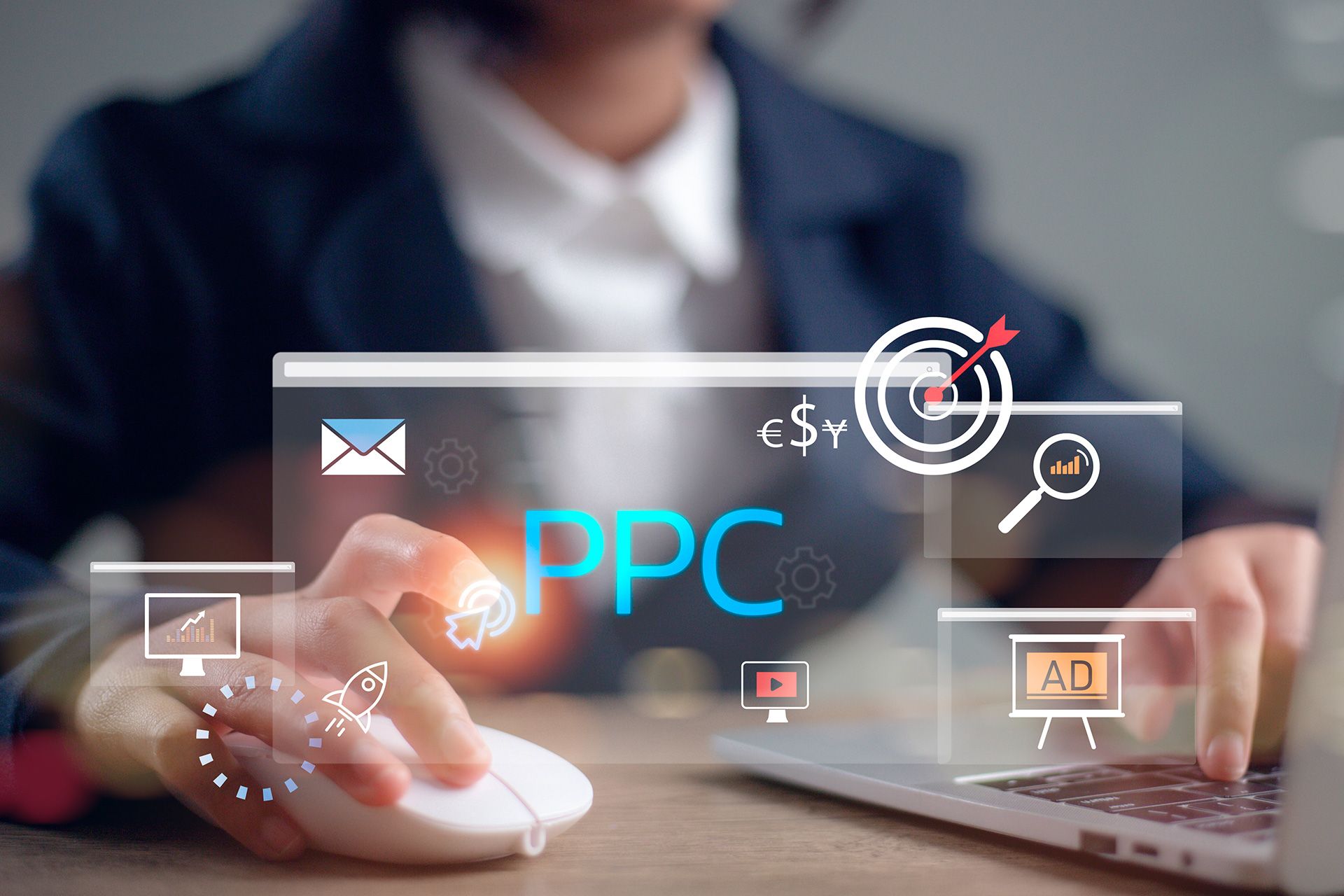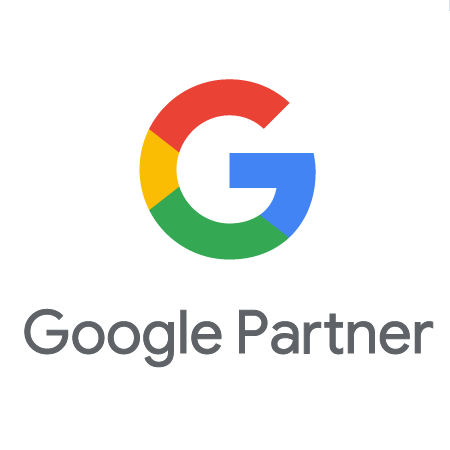How Can Law Firms Capitalize on PPC Ads?

You’ve heard about the mysterious world of online ads. You’ve seen your competitors do it, you’ve heard the experts talk about it and you’ve no doubt heard about the success that can come with a well-executed PPC campaign. You obviously want that success, but there are challenges that come with launching online ads in the legal space. Legal keywords are pricey, the competition is steep and even when you spend all of that money on the “right” keywords, it may not bring you, qualified prospective clients.
Despite the obstacles, PPC can work for you. This article will walk you through the background elements needed for a successful PPC campaign and the foundational steps to take to implement a PPC campaign that works for you and your goals.
1. Due Diligence: Keep Your Competitors Close
The first step is to understand what firms within your space are doing with PPC ads, especially your competitors. The amount of competition is often an obstacle for lawyers who want to try their hands at PPC. Many lawyers (and businesses in general) don’t take the time to do competitive research, and it shows in their results, or lack thereof.
So how do you conduct competitor research? First, we recommend finding expert PPC ads management West Palm Beach to help you fully understand your competitor landscape on search. A skilled PPC ads agency can help you do all of the following to hone in on exactly who your PPC competitors are:
1. Pull and analyze the data – Understanding which metrics to look at, like impression share, overlap rate, top of page rate and position above rate is key to getting a thorough evaluation of your competitive landscape.
2. Use the data – For some reason many businesses stop at collecting the data. The next step is to implement your findings, making it actionable for you and your goals. You can do this by ensuring that you’re optimizing your ads as the data and landscape continue to evolve.
3. Know your competitors – Your offline and online competitors could be different. Additionally, your competitors may not even be law firms! Understanding whether your search competitors are other firms, resellers, affiliates, etc.
4. Sift out the best keywords – Keywords are one of the largest parts of your campaign. Initially setting up keywords correctly is huge, then optimizing your keywords as the campaign runs is required. Labeling top-performing keywords and creating reports and alerts around them is a good idea, as you’ll quickly be able to see any changes (i.e, a new competitor coming in to push you out).
Once you know more about your search competition, you can tailor your own strategy to it. You, of course, don’t want to be another law firm doing the same things; knowing what’s already being done helps you to do it differently. What’s the reason a searcher will choose you over the law firm next door? Do you have a unique offer, a stellar reputation, or other benefits you can promote to entice them to go with you over someone else? This is the place to craft your calls-to-action (CTA) and overall messaging.
2. Meet Your Prospective Client Where They Are in the Funnel
This brings us to knowing what messaging and CTAs will appeal to your client. The key to this is putting yourself in your ideal prospective client’s shoes and understanding how your marketing funnel works. Say that you have a goal to increase your number of car accident cases. You’ll need to think about how the car accident victim feels. Let’s take “Ted” for an example. Ted is scared, hurt, and worried about his financial future. He feels that his accident has thrown his entire life off course. He cannot work in order to pay his bills. Ted is nearing eviction. He’s desperately seeking answers, so he searches Google to find them.
Now that you know Ted’s feelings, and the ultimate trigger of his initial Google search, let’s break down the marketing funnel:
1. Awareness
– This is the first phase, and hopefully your overall marketing plan (say a billboard, magazine ad, or social media post) has already taken care of this. If so, you get extra points down the road when prospective clients are in the next phases.
2. Interest
– This is post-accident, which is where Ted is in the situation we’ve described above. He’s researching solutions to his issues and considering taking legal action. You want your law firm to show up during this phase, and this is where PPC comes in. During Ted’s Google search, imagine your law firm coming up in his search results.
3. Consideration
– Ted’s done his research. He better understands what options he has to get him out of his desperate situation. Now he’s trying to decide whether he
should
hire a law firm.
4. Action
– Through more education and consideration, he’s now convinced that he
will
hire a law firm. Now the question in Ted’s mind is
which
law firm to hire. If you’ve done a good job advocating for yourself, Ted will choose you.
5. Loyalty
– You win the case for Ted, helping him to get his life back. He’s grateful, and he refers everyone he can to your law firm.
Understanding each question in this funnel, which is ultimately the decision-making process, is vital to bringing in consistent and qualified leads with your PPC campaigns. A good agency who does PPC ads management West Palm Beach will help you break down these stages for your specific goals and prospective clients.
3. Create Dedicated Landing Pages for Your PPC Efforts
Having good, effective assets to put behind your PPC campaigns is everything. Without viable research, messaging, web content, etc., you’re wasting a lot of time and money on PPC ads that will never work for you. Insert dedicated landing pages. Leading a qualified prospect to your website page is often not enough. Someone is way more likely to click your ad (money spent), then leave your page after a half-hearted scroll or two of his/her mouse.
However, if you’ve created a landing page for your ads based on your prospective client’s decision-making process, she’s a lot more likely to stay, learn something, then navigate around your website. The trick is to consciously lead her through the landing page based on what actions you want her to take in combination with the actions she will innately take (see above funnel breakdown).
Let’s go back to Ted. He’s back at his computer, in a state of despair, watching his life crumble around him. He searches Google and finds your law firm’s dedicated landing page. Ted wants to know what to do after being involved in a car accident, and your landing page is there to tell him what to do. Think about making the content on the page as informative and digestible as possible. A few content ideas for this page are below:
1. A video of you speaking to Ted’s situation, identifying advisable next steps
2. A downloadable checklist advising “what to do after a car accident,” that Ted can download in exchange for his email address (building your email list, too)
3. Frequently asked questions that you’ve heard straight from previous clients that will tell Ted what action to take next
4. Blog links to lead Ted around your site, educating him more on the right steps to take, including hiring your firm
4. Lead Prospective Clients Through Your Website
Your dedicated landing page has helped Ted, and he’s still on a quest to find more education on his situation and legal options. Your landing page is his directory if done correctly. From the dedicated landing page, Ted has his choice of next steps. Will he choose to read more blog posts on your website, strategically linked throughout the dedicated landing page? Will he engage your chat bot for more information or to set up a consultation with you? Will, he read your services page or check out your past results via online case studies?
As Ted is led through your website, it’s here that he exits the “interest” phase with a full understanding of his legal options and enters the “desire” phase where he decidedly chooses to hire a law firm. He may stay on your site, or research other attorneys, as he goes into the “action” phase, deciding which law firm to hire. Regardless of whether he leaves your firm’s site to do more research on law firms, he’s had sufficient education of his situation and options from you, so the odds are that he’s leaning towards your firm.
Bonus law firm marketing tip – As Ted continues his research on which firm to hire, a retargeted display ad could strategically bring him back to your site without him having to re-enter your web address or do another Google search for you. Retargeted display ads are a means to create a well-rounded marketing campaign on Google Ads that touches your prospective clients in all phases of the funnel.
5. Track Your Results
After you’ve set up your PPC campaigns, don’t forget to track your results. This is key in understanding which optimizations and changes you need to make to your ads, ad copy, messaging, etc. going forward. How do you know which part of your ad campaign to change? Your metrics will tell you. An experienced agency that does PPC ads management in West Palm Beach will know how to read the numbers. For instance, if your ads are getting a lot of clicks but no lead conversions, your agency will know that it’s time to re-examine your landing page. Here are some questions to consider in this particular case:
1.Is the landing page unappealing?
2. Does the landing page not address the expectations set by the ad and keywords?
3. Should you revisit your CTAs?
4. Is it difficult for your website visitors to convert on your landing page (i.e, is your website form hard to find or not working? Is your phone number hidden? Is your website just hard to navigate?)
Tracking your campaigns also helps you pinpoint marketing return on investment, which can help you set your yearly marketing budget (yes, you should have one of those).
How to Set up Your Legal PPC Campaigns
Setting up a strategic online ad campaign can provide you with a strong lead funnel that produces scalable and predictable results.
Let Oamii help you get there! We’ll ensure that your marketing dollars are spent effectively and efficiently. We welcome you to contact us at Oamii to help you market your firm and build your book of business. Please fill out our
online contact form, or call us at
561-228-4111 today.
Disclaimer: The information on this website and blog is for general informational purposes only and is not professional advice. We make no guarantees of accuracy or completeness. We disclaim all liability for errors, omissions, or reliance on this content. Always consult a qualified professional for specific guidance.








